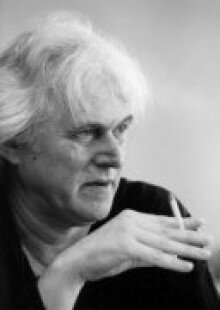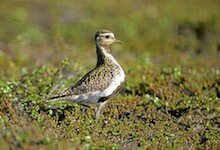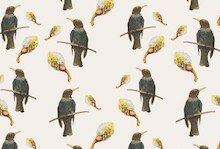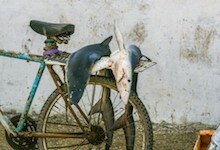
Meir Wieseltier was born in Moscow in 1941, just before the Germans invaded Russia. He was taken to Novosibirsk in southwestern Siberia by his mother and two older sisters in the same year. His father was killed while serving in the Red Army in Leningrad. Wieseltier came to Israel after spending two years in Poland, Germany and France; he grew up in Netanya and, in 1955, moved to Tel Aviv where he has lived ever since. His first poems were published when he was eighteen.
After studying at Hebrew University, Meir Wieseltier became the central figure in a group of artists known as the Tel Aviv Poets in the early 1960s. Wieseltier was co-founder and co-editor of several issues of the literary magazine Siman Qri'a, and served as poetry editor at the Am Oved publishing house. He has translated English, French and Russian poetry into Hebrew, as well as four of Shakespeare's tragedies, and novels by Virginia Woolf, Charles Dickens, E.M. Forster and Malcolm Lowry. His own books of poetry now number 13, and a collection of his poems, translated into English by the American-Israeli poet Shirley Kaufman, has just appeared in the United States. Individual poems have been published in Arabic, Chinese, Czech, Dutch, English, Estonian, French, German, Greek, Hungarian, Italian, Japanese, Polish, Portuguese, Russian, Serbo-Croatian, Spanish, Vietnamese, and Ukrainian. Wieseltier has won many literary awards, including the Israel Prize, the country's highest honor for lifetime achievement, “awarded in 2000 by the Israeli establishment to its most anti-establishment poet,” as Kaufman puts it.
Wieseltier has consistently taken a nonconformist literary stance. His passion for Tel Aviv plays an important role in his writing and expresses itself in a love-hate relationship. Often employing ironic imagery and a sarcastic, despairing tone, he demands awareness of life's unavoidably painful realities, and urges full emotional and philosophical involvement. Wieseltier places himself at the heart of his work, often writing in the first person, and takes on the role of moralist, searching for values in the midst of chaos. For Wieseltier, poetry is both oppressive (“a lust for lies”) and life-giving: inherently futile, it is, nonetheless, the alternative to surrender and mediocrity. Wieseltier has written powerful poems of social and political protest in Israel, poems that are painfully timeless. His voice is alternately anarchic and involved, angry and caring, trenchant and lyric.
Interesting articles
To cry and laugh and build a bridge
Too loud?
Working with the poet
Publications
Shirim Itiyim (Slow poems), Hakibbutz Hameukhad, 2000.
Maxsan (Storage), Hakibbutz Hameukhad, 1995.
Mikhtavim Ve-shirim Axerim (Letters and other poems), Am Oved, 1986.
Yi Yevani (Greek island), Hakibbutz Hameukhad, 1985.
Qitsur Shnot Hashishim (The concise sixties), Hakibbutz Hameukhad, 1984.
Motsa El Hayam (Exit to the sea), Hakibbutz Hameukhad, 1981.
Pnim Vaxuts (Interior and exterior), Hakibbutz Hameukhad, 1977.
Davar Optimi, Asiyat shirim (Something optimistic, the making of poems), Mif’alim Universita’iyim Lehotsa’a La’or, 1976.
Qax (Take), Mif’alim Universita’iyim Lehotsa’a La’or, 1973.
Me’a Shirim (One hundred poems), Gog, 1969.
Pereq Alef Pereq Bet (Chapter A chapter B), Akhshav, 1967.
Tiyul B’Iona (A walk in Iona), Kiltartan, 1963.
Websites on Wieseltier
In English:
Wieseltier's page at the Faculty of Humanities, the University of Haifa
The home-page of authors at The Institute for the Translation of Hebrew Literature web site
Information concerning The Flower of Anarchy, selected poems of Meir Wieseltier translated into English by Shirley Kaufman
Wieseltier's poem 'Far From The Flag Parade' translated into English by Shirley Kaufman
Wieseltier's poem 'Sonnet: Against Making Blood Speak Out' translated into English by Shirley Kaufman
'God and Man in the Poetry of Meir Wieseltier', an article by Dr. Stanley Nash, Professor of Hebrew Literature
An article about Meir Wieseltier's and Gali-Dana Singer's poetry and visit to Moscow for the poetry festival in October 2003
In Hebrew:
A short biography
An interesting interview with Meir Wieseltier
An article by Prof. Chana Yeuz on protest and grotesque in some of Wieseltier's poems
In Catalan:
Biographic information about Wieseltier
In Czech:
Details about an anthology of Hebrew poetry in Czech, including poems by Wieseltier
In Dutch:
A site with some poems about Israel, among others, Wieseltier's “Als ik doodga”
In Italian:
The view of an Italian translator and part of a Wieseltier poem
Israeli literature in the time of the Intifada with a reference to a Wieseltier poem
Israeli literature translated into Italian with a reference to Wieseltier's poetry
In Spanish:
Some Hebrew poets - biographies and poems







